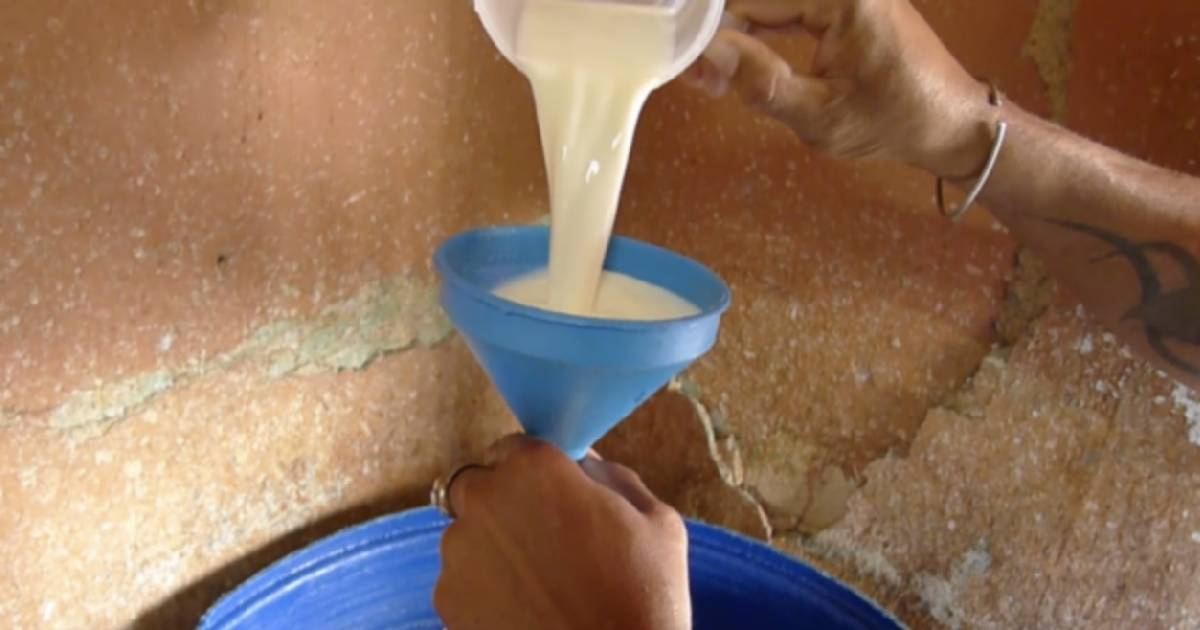Ailén Carbonell Izquierdo, president of the Domingo Lara Credit and Services Cooperative (CCS) in Manicaragua, has raised concerns about the prolonged non-payment to farmers for their milk deliveries.
According to a report by journalist Jesús Álvarez López from the state-run radio station CMHW, Carbonell expressed her frustration and anxiety regarding the situation faced by her producers since January. "My farmers have been delivering milk beyond their planned quota since January, and yet, six months later, they still haven't been paid for the surplus," Carbonell stated.
Despite the Dairy Industry and Trade Company (ECIL) allocating the funds, the bank has not made the money available, exacerbating the issue by also withholding payments for milk delivered from June to the present.
Carbonell questions how farmers can purchase what they need without receiving their salaries in Cuba. "They are left with the option of selling to the black market, which pays immediately and profits from the farmers' production," she lamented, noting the seeming lack of concern over this issue.
"Between theft, slaughter, non-payments, and the lack of motivation from some, we are in a dire situation," the CCS president asserted. She emphasized the importance of collective effort and consideration for the producers who are delivering their products. "We risk losing them. They work because they need money in their pockets, not in someone else's hands," she added.
Challenges of Inadequate Banking Infrastructure
One of the significant challenges highlighted by Carbonell is the lack of adequate banking infrastructure, a situation impacting agricultural and livestock producers across the country. "My farmers don't even have coverage, not to mention the elderly without mobile phones, compounded by a bank 8 kilometers away in Guabina. Imagine how often they would have to go to get their money when we need them in the field," she expressed.
"We are being cornered, but we are somewhat stubborn and continue to persevere. I believe we can always give more for a country that has given us everything, and I defend it fiercely, but not the people who are complacent and refuse to see beyond their immediate personal problems," she concluded.
Milk is one of the most expensive products in Cuba. Millions of children and elderly people in the country cannot even consume a glass a day. The government blames the farmers for not producing enough and insists that it will not import milk due to a lack of resources.
This case is just one of thousands that demonstrate the lack of governmental support to boost production in Cuba.
Frequently Asked Questions About Milk Payments in Cuba
The issue of delayed payments to milk producers in Cuba raises several important questions. Here are some frequently asked questions and their answers to help understand the situation better.
Why are farmers in Manicaragua not receiving payments for their milk deliveries?
Farmers in Manicaragua have not received payments due to a disconnect between the Dairy Industry and Trade Company (ECIL), which has allocated the funds, and the bank, which has not made the money available.
How is the lack of adequate banking infrastructure affecting farmers?
The inadequate banking infrastructure means that many farmers, especially those without mobile phones or residing far from banking facilities, face significant challenges in accessing their payments, further complicating their financial stability.
What alternative do farmers have if they don't receive their payments?
Farmers are often left with the option of selling their products to the black market, which provides immediate payment but undermines the formal economy and exploits the producers.
